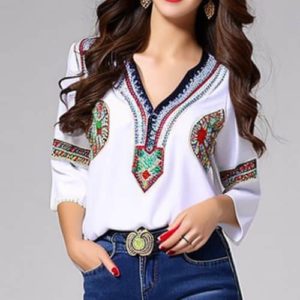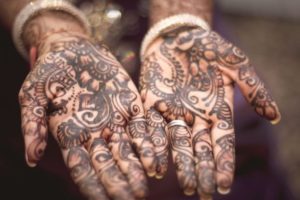Pakistani Wedding Traditions
What are the traditions of a Pakistani wedding?
Pakistani weddings are joyful events filled with many traditions. It is not only a beautiful union of the couple but also of the families.
Even the simplest form of Pakistani wedding takes about three days.
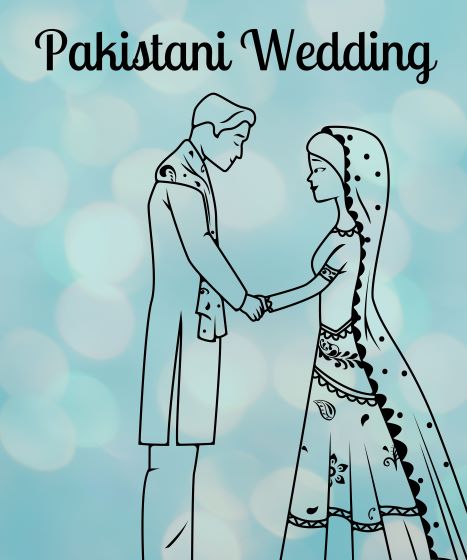
Here are a few things that are usually common at most Pakistani weddings.
- Mehndi Night Ceremony (also known as Henna)
- The Nikkah (I dos ceremony)
- Walima (reception hosted by the groom’s family)
These three events are usually on different nights, and you may not be invited to all three events.
For example, most Pakistani people keep the Nikkah private for the close family only.
At the longer end of the celebrations, a Pakistani wedding can take up to a week.
Week-Long Pakistani Wedding Traditions Include:
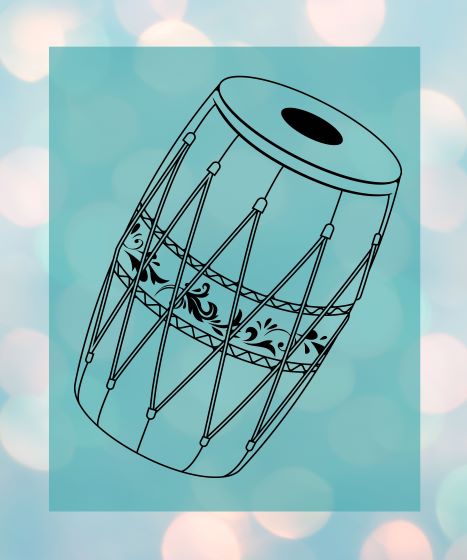
Dholki Tradition –
So, what is a Dholki?
Simply put, it is the name of the two-headed drum used to sing and dance. Dholki (drum) is also the name of this tradition that starts pre-celebrations of a Pakistani wedding.
Usually, this event is held a few days to a week before the wedding. Close friends and family members come together to play the Dholki (drum) along with singing and dancing.
Mayun Tradition –
The first thing to know about a Mayun is that it is a women-only event.
Mayun is also a pre-wedding ceremony. This event is where all the women from both sides of the family, along with friends of the bride, come together to apply ubtan and oil on the bride.
Ubtan is a homemade paste with natural ingredients like gram flour (besan), turmeric (haldi), sandalwood powder (chandan), rosewater, and milk.
This tradition starts with guests taking turns placing tiny amounts of oil in the bride’s hair. Next, spreading ubtan on her face, arms, and feet of the bride to enrich her beauty.
Lastly, Mayun is a tradition that is sometimes skipped or combined with the mehndi night ceremony or has a whole night dedicated to it. This solely depends on the bride’s family.
Mehndi Ceremony (Henna Night) –
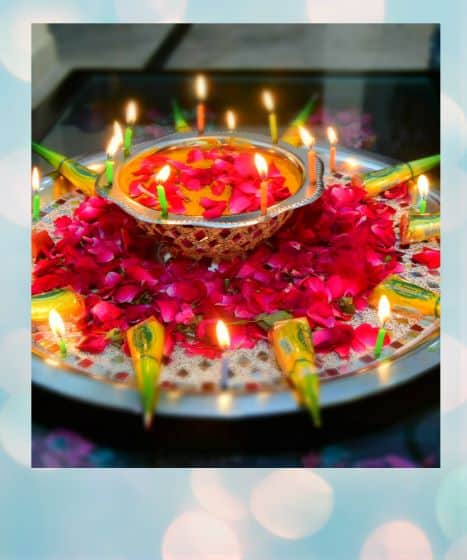
Mehndi Henna Tray Wedding
No matter where you’re from or how big or small a wedding may be. Mehndi night ceremony is the most looked-forward-to event at a Pakistani wedding.
It is tradition for the bride and guests to wear yellow-colored clothing.
Check Out My Complete List of the Most Popular South Asian Fashion
Traditionally mehndi night (henna) is an event for the bride; however, the tradition has grown to include the groom and family too.
The mehndi ceremony starts with guests applying a bit of oil to the bride’s head and some mehndi (henna) to the palm of her hand. This ceremony is to bless the happy couple for the future.
At some events, a mehndi (henna) artist may be available to apply henna to guests’ hands.
After this ceremony, all the singing and dancing begin with performances from both the bride and groom sides.
By the end of all the singing and dancing, there will be a medley of Pakistani food to enjoy.
Nikkah Ceremony – Pakistani Wedding Traditions
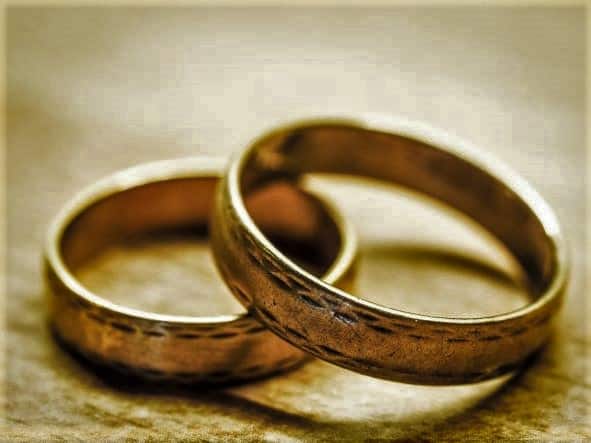
Wedding-Rings
Traditionally, the Nikkah ceremony is a small private event for close family and friends.
Pakistani Nikkah ceremony is the signing of the legal marriage contract.
The vows and signing of the contract happen with an Imam and at least two witnesses from both sides. An Imam is a person who leads prayer in a mosque.
The Nikkah ceremony is usually at a masjid (mosque) or a private home.
Exchanging vows and promises is usually a simple event with guests wearing pastel colors. The bride usually wears a white suit with a red dupatta (scarf) over her head, and the groom wears a shalwar kurta with a waistcoat.
Barat Ceremony –
Pakistani Barat ceremony is the total opposite of Nikkah.
The Barat ceremony is huge, with bright-colored clothing, loud music, dancing, colorful décor, and traditional fun games with the groom. Games like doodh pilai and joota chupai.
Traditionally, the groom comes on a horse with his family and takes the bride to his home.
Nowadays, the Barat includes booking a hall with many guests, singing, dancing, professional video, and photography.
You will also enjoy lots of traditional Pakistani food and wedding cake.
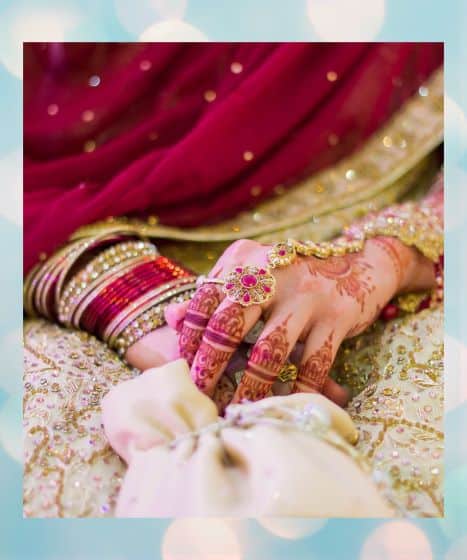
Pakistani-Bride
Rukhsati –
Rukhsati happens at the end of Barat night. It is the ritual of the bride saying her goodbyes to her family before she starts her new journey with her husband.
This moment has both tears of sadness and joy. It is sad because the bride is leaving behind her parents, home, and childhood. This moment also has the excitement of joy for a new beginning.
The Holy Quran is held over the bride’s head as she leaves. This symbolizes that she is going within Allah’s blessing and protection.
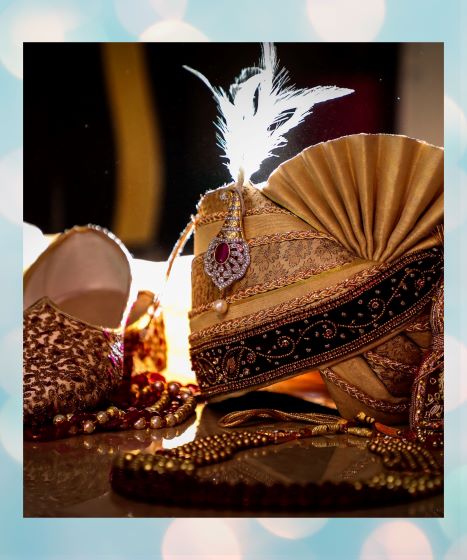
Groom-Fashion
Walima –
So, What is a Walima?
Walima is a reception given by the groom as the final event of the wedding. In most cases, this Walima takes place right after the Pakistani wedding. However, sometimes it can happen days to a few weeks later.
The groom and his family host a final dinner, celebrating the union of both families and the newly married couple.
Guests from both sides attend, and there are speeches, music, dance, and tons of great food.
When it comes to Pakistani weddings, there is no one correct way to do things. Traditions can differ depending on family or what region of Pakistan they are from.

